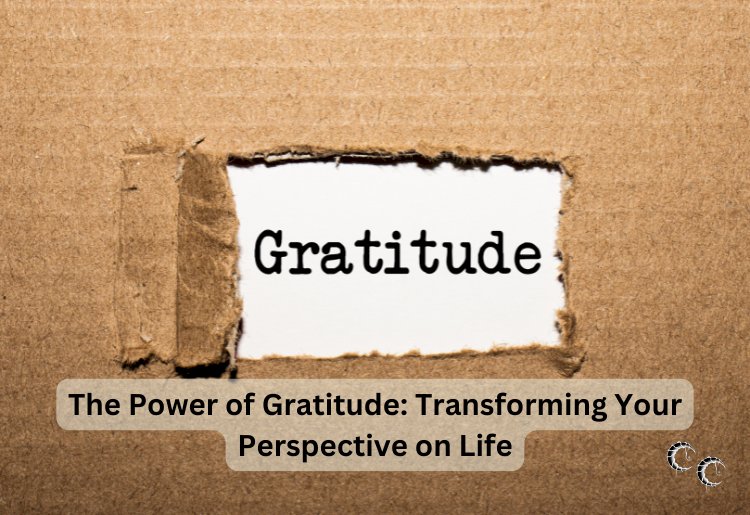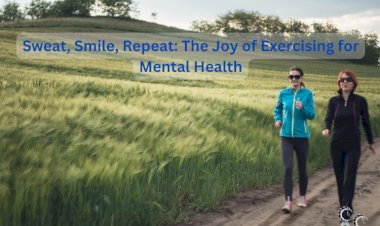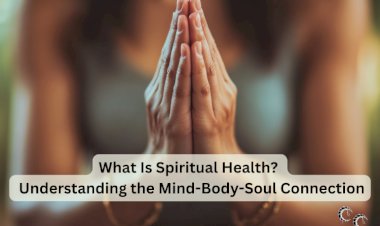The Power of Gratitude: Transforming Your Perspective on Life

Gratitude is one of the simplest yet most transformative practices you can incorporate into your daily life. It involves focusing on the positive aspects of your life, acknowledging what you're thankful for, and developing a mindset that recognizes and appreciates the good around you. When practiced consistently, gratitude has a profound impact on mental health, relationships, and overall happiness.
Improving Mental Health Through Gratitude
- Reduces Stress and Anxiety: When you focus on gratitude, it shifts your attention away from stressors and negative thoughts. This can significantly reduce feelings of anxiety and tension, helping you feel more grounded and at peace.
- Enhances Positive Thinking: Practicing gratitude rewires your brain to notice the good in life, which leads to a more optimistic outlook. Over time, this helps you develop a natural inclination toward positivity, even during challenging times.
- Boosts Emotional Resilience: Gratitude strengthens your emotional resilience by encouraging you to appreciate what you have rather than what you lack. This perspective makes it easier to face adversity and bounce back from setbacks with a sense of gratitude for what remains constant and supportive in your life.
Strengthening Relationships Through Gratitude
- Fosters Connection: Expressing gratitude to others, whether through a simple "thank you" or more heartfelt acknowledgments, strengthens relationships. It shows appreciation for the people around you and encourages mutual respect.
- Improves Communication: When you practice gratitude in your interactions, it opens up channels for positive communication. Expressing gratitude for someone's time, help, or kindness builds trust and fosters deeper connections.
- Encourages Kindness: Gratitude breeds kindness. As you express gratitude, you're more likely to pass it along to others, creating a ripple effect that improves relationships and builds a supportive, caring network.
Enhancing Overall Happiness
- Cultivates Contentment: Gratitude helps you recognize and appreciate the present moment. Instead of focusing on what you don’t have or what’s missing in your life, you begin to see how much you already have, which can make you feel more content and fulfilled.
- Boosts Well-being: Studies have shown that practicing gratitude can improve overall well-being by enhancing positive emotions like joy, hope, and satisfaction. It reduces feelings of loneliness and increases overall happiness by shifting focus to what brings you joy.
- Promotes Better Health: Gratitude isn't just good for the mind—it's good for the body too. Studies suggest that practicing gratitude regularly can lead to better sleep, lower blood pressure, and improved immune function, contributing to a healthier lifestyle overall.
How to Practice Gratitude Daily
- Keep a Gratitude Journal: Each day, write down three things you're grateful for. These can range from small moments, like a warm cup of coffee, to larger blessings, like good health or meaningful relationships. Reflecting on these things daily helps you cultivate a habit of gratitude.
- Express Appreciation to Others: Make it a habit to express gratitude to the people around you. Whether it's thanking a colleague for their help or telling a loved one you appreciate their support, verbalizing your thanks strengthens relationships.
- Focus on the Present Moment: Practice mindfulness by focusing on the present and acknowledging what's good in that moment. This can be as simple as noticing the beauty of nature, enjoying a moment of peace, or appreciating your personal achievements.
- Use Gratitude Prompts: If you’re struggling to find something to be grateful for, try using gratitude prompts like: “What made me smile today?” or “Who made my day better?” These can help shift your perspective and uncover the smaller moments of joy.
- Reframe Negative Experiences: Instead of focusing on the negative aspects of a situation, try to find something to be grateful for. For example, if you’re stuck in traffic, be grateful for the opportunity to have a few moments of quiet or listen to your favorite podcast.
Conclusion
Gratitude is a powerful tool that can transform your life by improving your mental health, enhancing your relationships, and increasing your overall happiness. By practicing gratitude daily, you shift your focus from what's wrong to what's right in your life, creating a more positive and fulfilling experience. Start small and gradually build a gratitude practice that works for you, and you'll soon notice its lasting effects on your outlook and well-being.





























